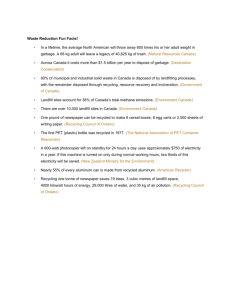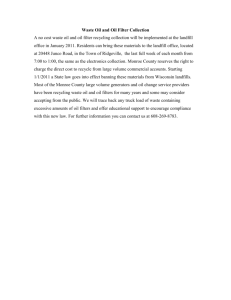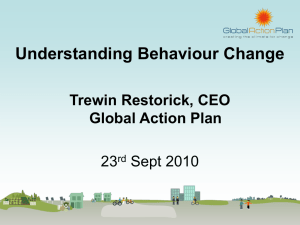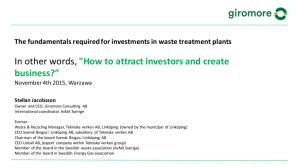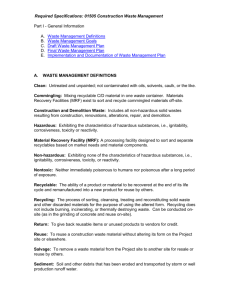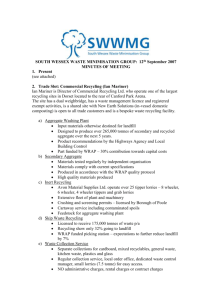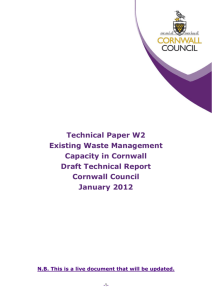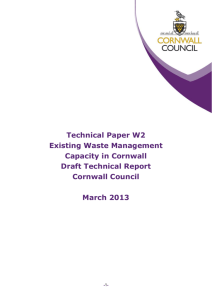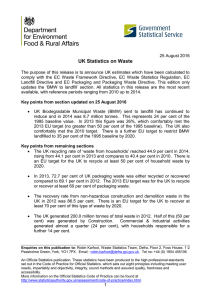Fresh Business Thinking
advertisement
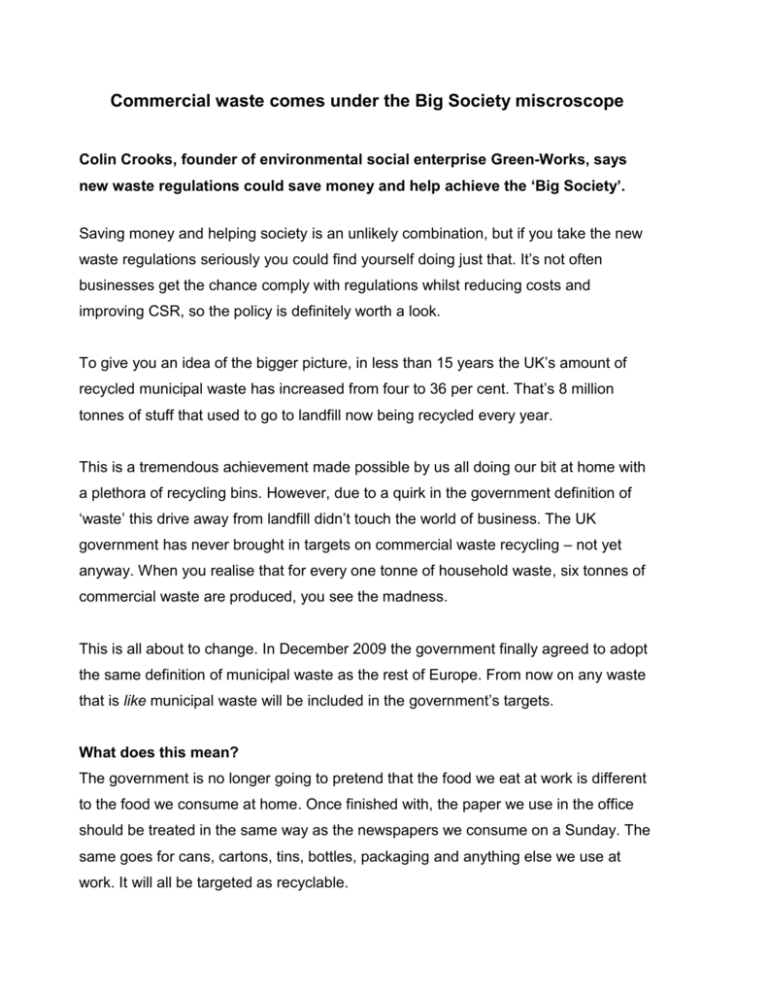
Commercial waste comes under the Big Society miscroscope Colin Crooks, founder of environmental social enterprise Green-Works, says new waste regulations could save money and help achieve the ‘Big Society’. Saving money and helping society is an unlikely combination, but if you take the new waste regulations seriously you could find yourself doing just that. It’s not often businesses get the chance comply with regulations whilst reducing costs and improving CSR, so the policy is definitely worth a look. To give you an idea of the bigger picture, in less than 15 years the UK’s amount of recycled municipal waste has increased from four to 36 per cent. That’s 8 million tonnes of stuff that used to go to landfill now being recycled every year. This is a tremendous achievement made possible by us all doing our bit at home with a plethora of recycling bins. However, due to a quirk in the government definition of ‘waste’ this drive away from landfill didn’t touch the world of business. The UK government has never brought in targets on commercial waste recycling – not yet anyway. When you realise that for every one tonne of household waste, six tonnes of commercial waste are produced, you see the madness. This is all about to change. In December 2009 the government finally agreed to adopt the same definition of municipal waste as the rest of Europe. From now on any waste that is like municipal waste will be included in the government’s targets. What does this mean? The government is no longer going to pretend that the food we eat at work is different to the food we consume at home. Once finished with, the paper we use in the office should be treated in the same way as the newspapers we consume on a Sunday. The same goes for cans, cartons, tins, bottles, packaging and anything else we use at work. It will all be targeted as recyclable. That simple change means businesses are going to have to halve the amount of waste they send to landfill to hit the new goals. And it doesn’t stop there; targets will increase year on year. Additionally there will be new pressures on business to ‘prepare for reuse’ as the EU has made changes to other rules on waste whilst upping recycling targets. Reusing saves a great deal more CO2 than recycling and ‘prepare for reuse’ is a common sense effort to ensure some products are reused as originally designed, rather than broken up for recycling. This will affect things of substance like furniture and electrical items and will present a new challenge to businesses unused to looking beyond recycling. Furthermore by 2020 50 per cent of all glass, metals, paper and wood will need to be separated for either ‘preparing for reuse’ or recycling. With landfill rubbish costs rising, recycling and re-using makes clear financial sense and using less energy significantly reduces a business’ carbon footprint. There’s also a less obvious, but no less important way of improving your CSR effort by engaging and motivating staff to reduce landfill, boost re-cycling and, best of all, re-use. What should businesses do? Together these changes are set to put new pressure on commercial waste. Here are five things that you can do to meet the new targets, make a difference to your bottom line and improve your CSR: Start looking at the business through the ‘waste prism’ I once did a waste audit for a hospital and identified that they were using a huge amount of very small (100ml) glass bottles every day. When I asked why, we found that for years the mother and baby unit had been buying expensive small bottles of distilled water, despite the fact that the hospital bought distilled water in bulk for pennies. This practice was changed overnight and saved the hospital around £50,000 in the first year alone. Looking at your waste will tell you all sorts of things about the way your business operates at ground level. When you look at your waste, think of it as representing a lost asset Think also of the wasted time it represents. You probably bought the product or material in the first place, paying people to handle and move it before sweeping it up and binning it. Whatever your waste bill is, trying multiplying it by 10 and then you might be getting closer to what it actually costs your business. If the waste is hazardous try 20 or even 30 times. Ask yourself, do you even need that process? Dow Chemicals asked why they were paying to dispose of 6,000 tonnes of caustic waste that formed in their scrubbers as they made chlorinated organic compounds. By changing the process they eliminated the lot and saved themselves over $2m in the first year. Encourage and motivate staff by getting them involved In my view Big Society starts at home and in the workplace. To make the biggest impact on your waste you need to get your staff involved. If they’re not already you’ll no doubt find a lot of employees who’ll readily take part. People are really worried about the environment and want to do their bit. They can identify areas you’d never thought of and will galvanise others too. Fuse ‘prepare for reuse’ with staff involvement Immediately you’ll find that the old desk in the corner is going to a staff room in a school, or the newly replaced printer that still works is off to the local scout group. Seize the opportunity We’ve yet to see how it will pan out, but some of the best translations of the coalition government’s ‘Big Society’ agenda are about people and businesses doing their bit to help wider society. With scientific proof of climate change tightening, using less energy is a social imperative for all of us. Businesses that take action should collect and publish data on the changes made. It’s a very rewarding process that will encourage others to see new opportunities to re-use and recycle, as well as impressing customers and shareholders. For more information about responsible management of unwanted furniture or office equipment, visit www.green-works.co.uk.

